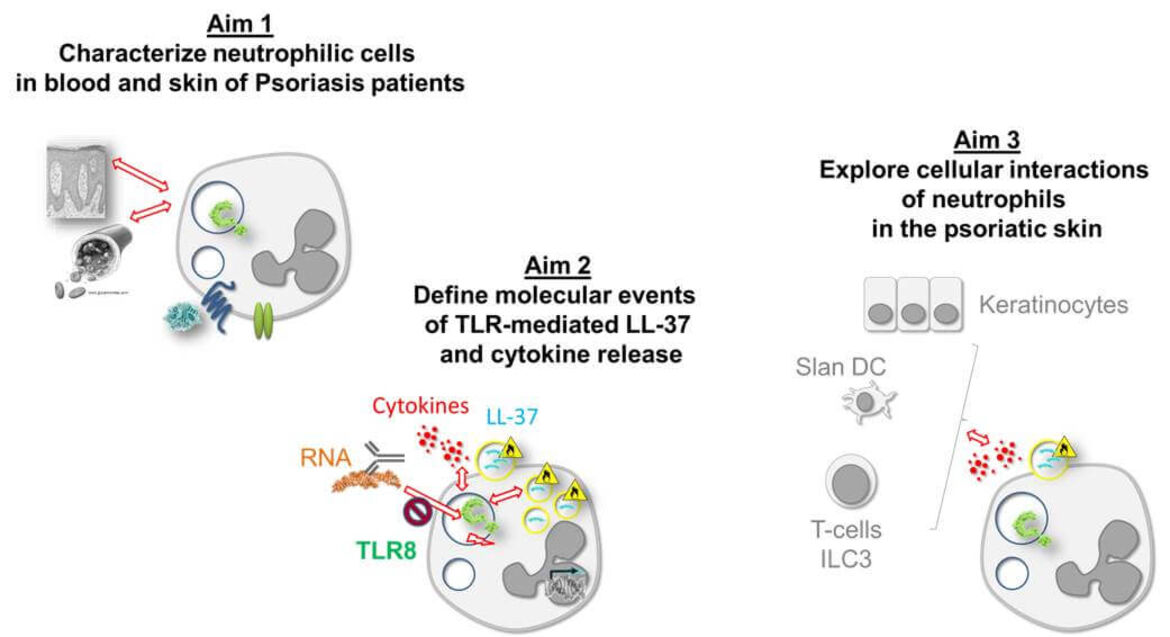B05: Dissecting TLR signaling in neutrophils as potential target in psoriasis
Immunologie/Zellbiologie und Universitätskinderklinik Tübingen
Psoriasis is a chronic inflammatory disease with high incidence and substantial morbidity. Psoriatic lesions are characterized by an infiltration of polymorphonuclear leukocytes (PMNs) and T cells, and an accumulation of the antimicrobial peptide LL-37. LL-37 promotes innate immune stimulation via nucleic acid-sensing Toll-like receptors (TLRs). PMNs store LL-37, respond to TLR8 and TLR9 stimulation, and drive pro-inflammatory cytokine expression. Unfortunately, little is known about PMNs and their precise role in psoriasis. We will therefore dissect the role of PMNs in psoriasis, focusing particularly on TLR-LL-37 mediated control circuits, contribution to the inflammatory micromilieu, and the balance between effector and suppressor PMNs. Furthermore, we seek to elucidate the enigmatic interplay of skin PMN with T cells, keratinocytes, dendritic cells and innate lymphoid cells. Our studies will employ in vitro and ex vivo analysis based on biopsy material and skin sections from patients as well as murine models in order to more accurately define the role of PMNs in psoriasis.


